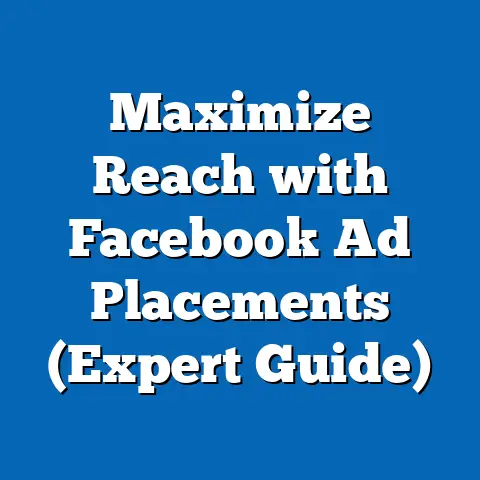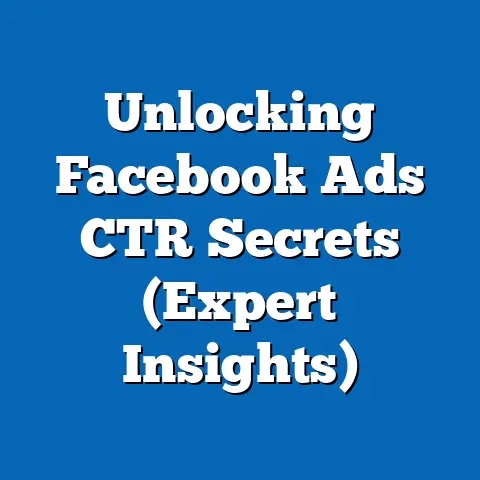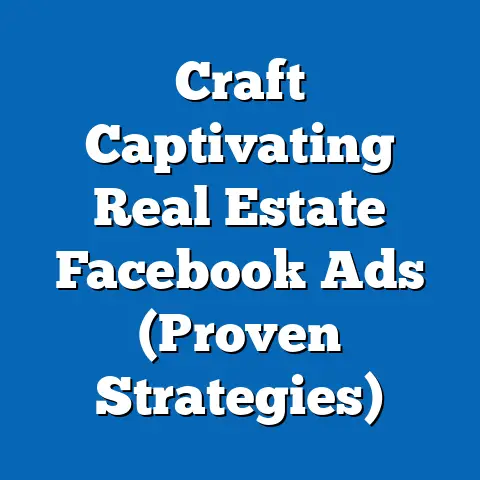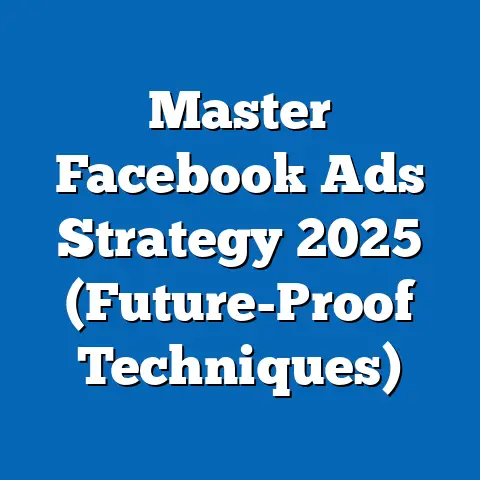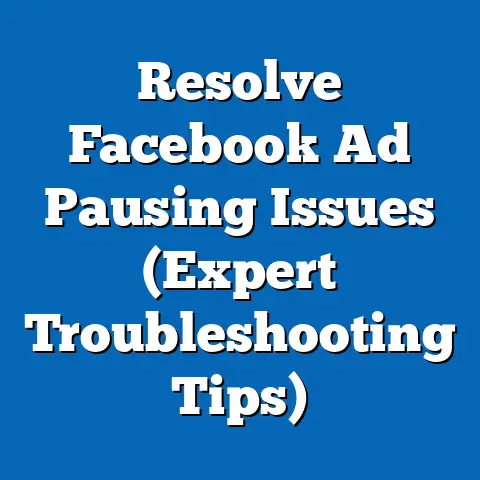Canceling Facebook Ad: What You Need to Know (Expert Tips)
One of the things I appreciate most about Facebook Ads is how easily I can maintain and adjust my campaigns.
The platform offers a user-friendly experience where I can quickly manage and modify my ads, making it effortless to adjust strategies when needed.
The intuitive interface of the Facebook Ads Manager provides the flexibility to easily pause or cancel ads without complex procedures.
It’s this ease of use that makes Facebook Ads so appealing for businesses of all sizes.
But while managing ads can be straightforward, knowing when and how to cancel them properly is crucial for optimizing your advertising efforts.
In this guide, I’ll walk you through everything you need to know about canceling Facebook ads, providing expert tips to ensure you make informed decisions that benefit your overall advertising strategy.
Reasons for Canceling Facebook Ads
There are several reasons why you might find yourself needing to cancel a Facebook ad.
Recognizing these reasons is the first step in making informed decisions about your advertising strategy.
Here are some common scenarios:
- Poor Performance Metrics: This is perhaps the most common reason.
If your ads aren’t delivering the desired results, such as low click-through rates (CTR) or conversion rates, it’s time to reevaluate.
For example, I once ran a campaign where the CTR was consistently below 0.5%.
After analyzing the data, I realized the ad copy wasn’t resonating with the target audience, and I decided to cancel the ad to avoid wasting further resources. - Budget Constraints and Reallocating Funds: Sometimes, you need to shift your budget to higher-performing campaigns or other marketing initiatives.
Canceling underperforming ads can free up funds that can be better utilized elsewhere. - Change in Marketing Strategy or Product Focus: Your business goals and product offerings can evolve.
If you’re no longer promoting a specific product or service, or if your marketing strategy shifts, the corresponding ads need to be canceled. - Seasonal or Promotional Campaign Completion: Many ad campaigns are designed for specific periods, such as holidays or product launches.
Once these events are over, it’s time to cancel the ads. - Audience Targeting Issues: If you find that your ads are not reaching the intended audience, or if the audience is not responding as expected, it may be necessary to cancel the ad and refine your targeting strategy.
Understanding these reasons helps businesses make informed decisions about their advertising strategies.
It’s not just about cutting costs; it’s about optimizing your ad spend for maximum impact.
Takeaway: Regularly assess your ad performance and align your campaigns with your business goals to determine when canceling an ad is the right move.
The Steps to Cancel a Facebook Ad
Canceling a Facebook ad is a straightforward process. Here’s a step-by-step guide:
- Log into Facebook Ads Manager: Start by logging into your Facebook account and navigating to the Ads Manager.
You can usually find this in the left-hand menu or by searching for “Ads Manager” in the Facebook search bar. - Navigate to the Campaign, Ad Set, or Ad Status: Once you’re in the Ads Manager, you’ll see a dashboard with your campaigns, ad sets, and individual ads.
Select the specific campaign, ad set, or ad that you want to cancel. - Select the Specific Ad to Cancel: Within the selected campaign or ad set, identify the ad you wish to cancel.
You’ll see a list of your ads with their current status. - Choose the Option to Pause or Delete the Ad: To cancel the ad, you have two options:
- Pause: This temporarily stops the ad from running.
You can resume it later if needed. - Delete: This permanently removes the ad from your account.
Use this option if you’re sure you won’t need the ad again.
- Pause: This temporarily stops the ad from running.
- Confirm the Cancellation and Understand the Implications: After selecting “Pause” or “Delete,” Facebook will ask you to confirm your decision.
Pay attention to any messages about billing and reporting.
For instance, if you cancel an ad in the middle of its scheduled run, you’ll only be charged for the impressions and clicks it received up to that point.
- Pause: This temporarily stops the ad from running.
You can resume it later if needed. - Delete: This permanently removes the ad from your account.
Use this option if you’re sure you won’t need the ad again.
To illustrate, I once had to pause an ad campaign due to a sudden inventory shortage.
By following these steps, I was able to quickly stop the ad and avoid promoting a product I couldn’t deliver.
Takeaway: Canceling a Facebook ad is simple, but it’s important to understand the implications for billing and reporting.
Always double-check your decision to ensure it aligns with your advertising goals.
Understanding the Implications of Cancellation
Canceling a Facebook ad isn’t just about stopping the ad from running.
It has several implications that you need to be aware of:
- Immediate Effects on Ongoing Campaigns: When you cancel an ad, it immediately stops running.
This means it will no longer be shown to your target audience, and you won’t incur any further costs for that specific ad. - Potential Impact on Overall Advertising Performance and Strategy: Canceling an ad can affect your overall campaign performance.
If the canceled ad was contributing to your overall goals, you might see a dip in results.
It’s crucial to monitor your remaining ads to ensure they continue to perform well. - How Cancellation Affects Billing and Any Remaining Budget: You’ll only be charged for the impressions and clicks that the ad received before it was canceled.
Any remaining budget allocated to that ad will be returned to your account, which you can then use for other campaigns. - Reporting and Analytics Adjustments After Cancellation: After canceling an ad, your reporting metrics will reflect the change.
You’ll see a clear distinction in the data, showing the ad’s performance before and after cancellation.
This can help you better understand what worked and what didn’t.
For example, I once canceled an ad that was part of a larger campaign.
I noticed that the overall campaign performance dropped slightly, but by reallocating the budget to other ads, I was able to quickly recover and even exceed the initial results.
Takeaway: Be mindful of the broader impact of canceling an ad.
Monitor your campaign performance and adjust your strategy as needed to ensure you continue to meet your advertising goals.
Expert Tips for Effectively Canceling Ads
Canceling Facebook ads should be a strategic decision, not a knee-jerk reaction.
Here are some expert tips to help you effectively manage your ad cancellations:
- Analyze Data Before Making the Decision to Cancel: Before canceling an ad, take a close look at the data.
Understand why the ad is underperforming.
Is it the targeting, the ad copy, the visuals, or something else?
Use the insights to make an informed decision. - Schedule Regular Reviews of Ad Performance: Don’t wait until an ad is failing to take action.
Schedule regular reviews of your ad performance to identify potential issues early on.
I typically review my ads weekly to catch any problems before they escalate. - Utilize A/B Testing to Determine the Best-Performing Ads Before Cancellation: A/B testing is a powerful tool for optimizing your ads.
Run multiple versions of the same ad with slight variations to see which performs best.
Then, cancel the underperforming versions. - Keep Records of Past Ads to Inform Future Decisions: Maintaining a record of your past ads and their performance can provide valuable insights for future campaigns.
You can learn from your successes and failures, and avoid repeating mistakes. - Understanding the Timing of Cancellations for Optimal Budget Management: Timing is crucial.
Canceling an ad too early might prevent it from reaching its full potential, while canceling too late can waste valuable budget.
Consider the ad’s learning phase and give it enough time to perform before making a decision.
I once worked on a campaign where I was unsure whether to cancel a particular ad.
After conducting A/B testing, I discovered that a slight change in the ad copy significantly improved its performance.
Instead of canceling, I optimized the ad and saw a substantial increase in conversions.
Takeaway: Strategic thinking is key to effective ad cancellation.
Use data, testing, and regular reviews to make informed decisions that optimize your advertising efforts.
Alternatives to Canceling
Before you hit the “cancel” button, consider these alternatives that might yield better results:
- Pausing Ads Temporarily Versus Canceling Permanently: Sometimes, a temporary pause is all you need.
If you think the ad might perform better in the future, or if you need to make adjustments, pausing is a better option than canceling. - Modifying Ad Content or Audience Targeting Instead of Cancellation: Often, the problem isn’t the ad itself, but the content or targeting.
Try tweaking the ad copy, visuals, or audience targeting before giving up completely. - Reallocating Budget to Better-Performing Ads: If you have multiple ads running, consider reallocating the budget from underperforming ads to those that are delivering results.
This can help you maximize your overall campaign performance.
For example, I once had an ad that wasn’t performing well, but I believed in its potential.
Instead of canceling, I adjusted the audience targeting and saw a significant improvement in its performance.
Takeaway: Don’t be too quick to cancel.
Explore alternative solutions that can help you optimize your ads and achieve better results.
Conclusion
Understanding the Facebook Ads cancellation process and its implications is crucial for effective advertising.
While managing and canceling ads is relatively easy, doing so strategically can significantly impact your overall success.
By analyzing data, scheduling regular reviews, and considering alternatives, you can make informed decisions that optimize your advertising efforts.
I encourage you to apply the expert tips provided in this guide to make the most of your Facebook advertising campaigns.
Remember, it’s not just about stopping the ads; it’s about making smart choices that drive results.

